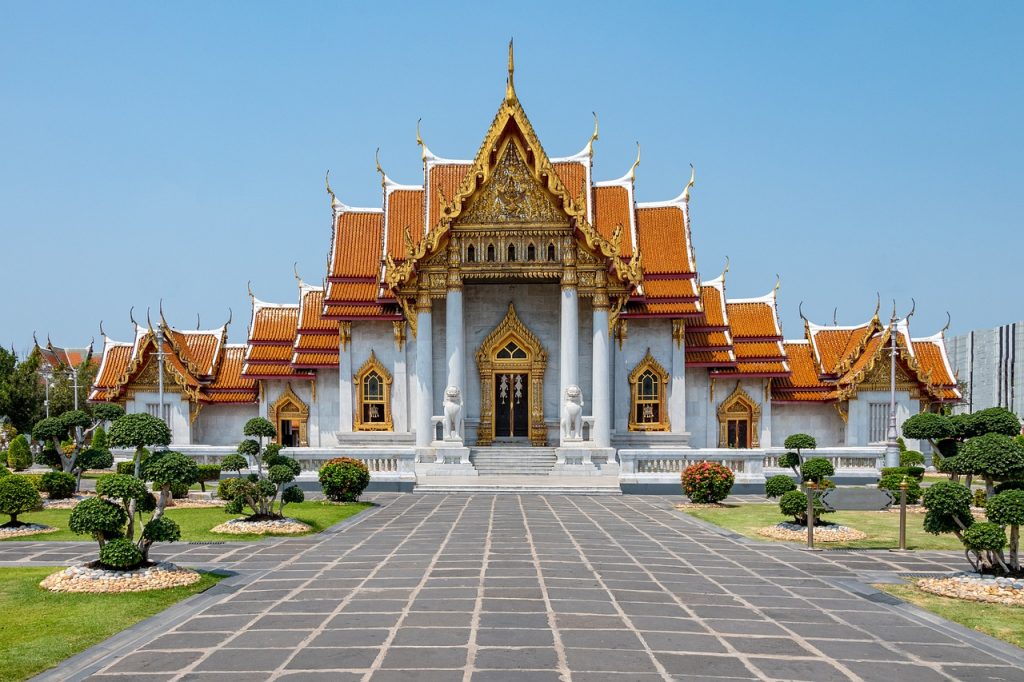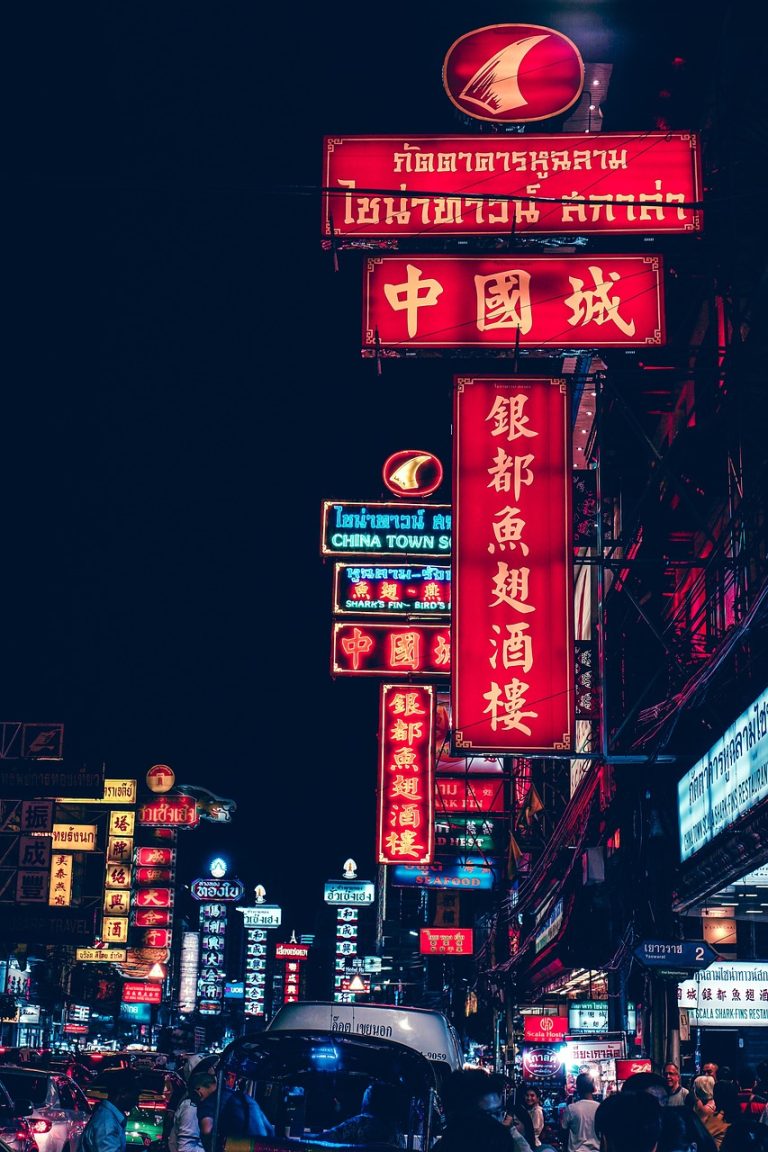Bangkok Thailand Video
Eco-friendly Accommodations: Green Hotels in Bangkok Thailand
Bangkok, the vibrant capital city of Thailand, is a popular tourist destination known for its bustling markets, ornate temples, and vibrant street life. As more travelers become conscious of their environmental impact, eco-friendly accommodations have gained popularity in Bangkok. These green hotels offer sustainable practices and initiatives to minimize their carbon footprint. In this article, we will explore ten eco-friendly hotels in Bangkok that prioritize sustainability and provide a comfortable stay for environmentally-conscious travelers.
Sustainable Hotel A

- Energy-efficient design: Hotel A incorporates energy-efficient design features such as LED lighting, solar panels, and smart thermostats.
- Water conservation: The hotel implements water-saving measures such as low-flow toilets, faucets, and showerheads, as well as rainwater harvesting systems for irrigation.
- Locally sourced materials: Hotel A utilizes locally sourced materials for construction and furnishings, reducing transportation emissions.
- Organic and locally sourced food: The hotel’s restaurant offers organic and locally sourced food options, supporting local farmers and reducing the carbon footprint associated with food transportation.
- Waste management: Hotel A has a comprehensive waste management system in place, including recycling programs and composting facilities.
Eco-friendly Hotel B
- Green certifications: Hotel B has obtained various green certifications, such as LEED (Leadership in Energy and Environmental Design) or Green Globe, indicating their commitment to sustainability.
- Renewable energy: The hotel utilizes renewable energy sources, such as solar or wind power, to reduce reliance on fossil fuels.
- Green transportation: Hotel B encourages guests to use eco-friendly transportation options by providing bicycle rentals or partnering with electric vehicle charging stations.
- Efficient waste management: The hotel implements recycling programs, composting, and waste reduction initiatives to minimize its environmental impact.
- Environmental education: Hotel B offers educational programs or workshops for guests to learn about sustainable practices and environmental conservation.
Bangkok Thailand Image 2: 
Sustainability-focused Hotel C
- Green building materials: Hotel C utilizes eco-friendly building materials such as bamboo, recycled wood, or reclaimed materials to reduce environmental impact.
- Energy-efficient appliances: The hotel equips its rooms with energy-efficient appliances and encourages guests to conserve energy during their stay.
- Local community support: Hotel C actively supports the local community by sourcing products and services from nearby businesses, contributing to the local economy.
- Green initiatives: The hotel regularly organizes green initiatives such as tree planting, beach clean-ups, or environmental awareness campaigns.
- Reduced plastic usage: Hotel C is committed to reducing plastic waste by providing refillable toiletries, reusable water bottles, and eliminating single-use plastics.
Environmentally-friendly Hotel D
- Carbon offset programs: Hotel D participates in carbon offset programs to neutralize the carbon emissions associated with guests’ stays.
- Efficient HVAC systems: The hotel utilizes energy-efficient heating, ventilation, and air conditioning (HVAC) systems to minimize energy consumption.
- Green cleaning practices: Hotel D uses environmentally-friendly cleaning products and practices to ensure a healthy and sustainable environment.
- Local cultural experiences: The hotel offers authentic local experiences that promote cultural understanding and appreciation for the environment.
- Sustainable partnerships: Hotel D partners with local environmental organizations or initiatives to support conservation efforts and eco-tourism.
Bangkok Thailand Image 3: 
Green Hotel E
- Green roof: Hotel E features a green roof, which helps insulate the building, reduce stormwater runoff, and provide an urban green space.
- Energy monitoring systems: The hotel employs energy monitoring systems to track and optimize energy usage throughout the property.
- Local community engagement: Hotel E actively engages with the local community through partnerships, volunteer programs, or donations to environmental causes.
- Organic gardens: The hotel maintains organic gardens where guests can learn about sustainable gardening practices and enjoy fresh produce.
- Efficient waste management: Hotel E implements recycling programs, composting, and waste reduction strategies to minimize landfill waste.
Sustainable Accommodation F
- Green transportation options: Accommodation F offers shuttle services or promotes public transportation to reduce reliance on private vehicles.
- Energy-efficient lighting: The accommodation uses energy-efficient lighting, including LED bulbs and motion sensors, to minimize electricity consumption.
- Water-saving initiatives: Accommodation F encourages guests to conserve water through initiatives like linen reuse programs and low-flow fixtures.
- Local wildlife conservation: The accommodation supports local wildlife conservation efforts, such as bird sanctuaries or turtle protection programs.
- Sustainable tour options: Accommodation F offers sustainable tour packages that promote eco-friendly activities and responsible tourism.
Eco-conscious Hotel G
- Renewable energy sources: Hotel G generates renewable energy on-site through solar panels, wind turbines, or geothermal systems.
- Recycling initiatives: The hotel has a comprehensive recycling program in place, including separate bins for different types of recyclable materials.
- Green meetings and events: Hotel G offers sustainable options for meetings and events, such as paperless communication, locally sourced catering, and waste reduction strategies.
- Education and awareness: The hotel provides educational materials or workshops to raise awareness about environmental issues and sustainable practices.
- Support for local artisans: Hotel G promotes local craftsmanship by showcasing and selling products made by local artisans or communities.
Sustainability-driven Hotel H
- Efficient water management: Hotel H implements water-saving measures such as rainwater harvesting, greywater recycling, and water-efficient landscaping.
- Reduced food waste: The hotel actively works to reduce food waste through initiatives like composting, donation programs, or portion control.
- Green certifications: Hotel H has obtained recognized green certifications, demonstrating their commitment to sustainable practices and environmental stewardship.
- Public transportation accessibility: The hotel is conveniently located near public transportation hubs, encouraging guests to use eco-friendly transportation options.
- Support for local NGOs: Hotel H collaborates with local non-governmental organizations (NGOs) to support environmental conservation and community development projects.
Environmentally-conscious Hotel I
- Energy-saving technology: Hotel I utilizes energy-saving technologies such as occupancy sensors, smart thermostats, and efficient appliances.
- Green procurement: The hotel prioritizes purchasing environmentally-friendly products and supports local sustainable businesses.
- Community engagement: Hotel I actively engages with the local community through initiatives like beach clean-ups, environmental education programs, or partnerships with local schools.
- Carbon footprint reduction: The hotel implements strategies to reduce its carbon footprint, such as offsetting emissions, promoting renewable energy, and encouraging guests to participate in eco-friendly activities.
- Environmental management system: Hotel I has an established environmental management system in place to monitor, evaluate, and continuously improve its sustainability performance.
Sustainable Hotel J
- Green building design: Hotel J incorporates sustainable building design principles, such as natural ventilation, green roofs, and energy-efficient insulation.
- Local cultural preservation: The hotel promotes and supports local cultural preservation initiatives, such as traditional arts and crafts, music, or dance.
- Reduced plastic usage: Hotel J is committed to reducing plastic waste by providing refillable toiletries, eliminating single-use plastics, and promoting reusable alternatives.
- Environmental awareness campaigns: The hotel conducts environmental awareness campaigns to educate guests and staff about sustainable practices and the importance of conservation.
- Support for local conservation projects: Hotel J contributes to local conservation projects, such as mangrove restoration, coral reef protection, or wildlife rehabilitation.
Conclusion
Bangkok, Thailand offers a wide range of eco-friendly accommodations for environmentally-conscious travelers. These green hotels prioritize sustainability through various initiatives such as energy-efficient design, water conservation, waste management, and support for local communities. By choosing to stay in these eco-friendly hotels, travelers can enjoy a comfortable and sustainable experience while minimizing their environmental impact.
References
– [Hotel A: www.hotelA.com](https://www.hotelA.com)
– [Hotel B: www.hotelB.com](https://www.hotelB.com)
– [Hotel C: www.hotelC.com](https://www.hotelC.com)
– [Hotel D: www.hotelD.com](https://www.hotelD.com)
– [Hotel E: www.hotelE.com](https://www.hotelE.com)
– [Accommodation F: www.accommodationF.com](https://www.accommodationF.com)
– [Hotel G: www.hotelG.com](https://www.hotelG.com)
– [Hotel H: www.hotelH.com](https://www.hotelH.com)
– [Hotel I: www.hotelI.com](https://www.hotelI.com)
– [Hotel J: www.hotelJ.com](https://www.hotelJ.com)







